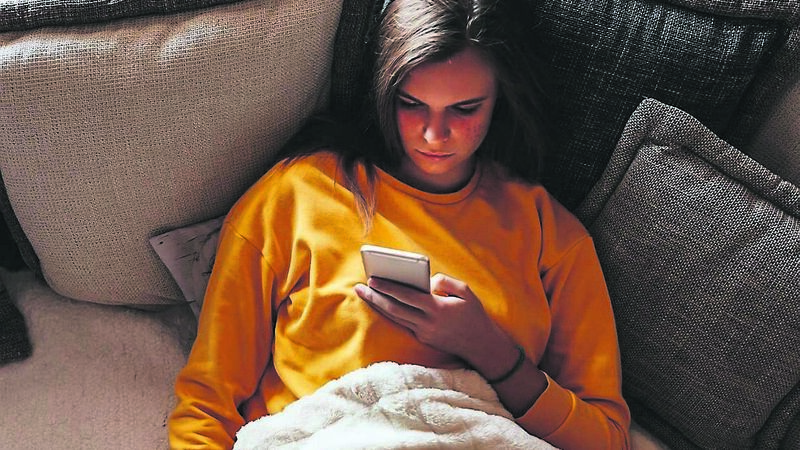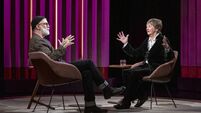Here’s a January detox we can all try to embrace: a digital one

“Not only are recommender algorithms and Big Tech companies stealing our time, they are also stealing our concentration.” iStock
January is the month when people throw the ‘detox’ word around the most. Many like to cast aside the excesses of the previous month and embrace a healthier way of living. More exercise. Less alcohol. More vegetables. Less chocolate.
I’m not a fan of depriving myself of nice things to eat and drink in the long, cold month of January, but I’m fully committed to detoxing from the digital distractions of my phone.
This is a typical scenario. I’m cooking dinner and pick up my phone to find a recipe that I read about in a weekend newspaper. Did I email the recipe to myself? No, oh but that client has emailed me back. I must reply later.
Still no recipe. Maybe I screen grabbed it and it’s in my Gallery. Cue 30 seconds of unsuccessful speed scrolling. Or no, I forgot, I think I Whatsapped the article with the recipe to myself.
Actually, did I forget to text that mother RSVPing to two hours of ear-splitting-sugar-powered-soft-play-bouncing-fun-slash-madness? I message her now lest I forget again. Done. I’ll also tell the girls I can’t do the 16th. Done.
Now, what was I doing? Oh yes, where is that flippin’ lentil recipe? Five minutes have elapsed, and dinner is nowhere nearer the table and my attention has pinballed around multiple life/work/family topics and I’m utterly distracted.
I abandon cooking anything new and trot out an old reliable lentil spag bol recipe.
This is just one snapshot of the various internal mental gymnastics that happen when technology and social media vies for our attention.
We use our phones for so many useful and helpful things, but I’m embarrassed to tell you that my ‘Digital Wellbeing’ app informed me I spent an average of two hours and four minutes on my phone every day in the last week. Fourteen hours in total of my one and precious life staring at a screen.
Obviously, some of that time was productive and necessary - corresponding with friends and families, internet banking and work emailing - but much of it was unnecessary scrolling because media and entertainment companies make money by keeping me on my phone, drip feeding me content they know I will like.
Some people will spend hours watching cat videos, others will scroll through endless amounts of fashion and beauty content, others like falling down internet rabbit holes filled with hate speech.
The dangers of these recommender algorithms are well established, from creating polarised, extremist communities to steering young people towards harmful content about self-harm and suicide.
An RTÉ Player series , The Disconnect, featured 20-something-year-olds who were spending hours of the so-called best days of their lives on their phones and recognised the sinister impact on their mental health.
One interviewee spent on average of seven hours a day on her phone!
Lamenting wasted time was common, “you’re never going to make memories staring at your phone”.
Socialising over Christmas, I spotted young couples dressed to the nines, looking like an aspirational Instagram post come to life, on a date, but both ignoring each other while they checked their phones. They weren’t sending their flatmates a quick “I won’t be home tonight - winky face” text, but were scrolling, absorbed by an online world while ignoring a hot date in the real world.
Not only are recommender algorithms and Big Tech companies stealing our time, they are also stealing our concentration.
Concentration and focus are the bedrock of human achievements and success. Would Archimedes have cracked a key mathematical principle if he had been distracted while taking his Eureka inducing bath? Or would Isaac Newton have cracked gravity if he had been doom scrolling while resting under a tree? Unlikely.
The ability to concentrate and maintain focus is becoming a valuable skill in our fast-paced digital age. The traditional workplace interruption of a colleague asking an ill-timed question while you focused on a specific task still occurs, but the lapses of concentration by employees logging on to social media in the workplaces has a significant impact on productivity and on the bottom line of businesses.
So how do we reclaim our focus? By making an intentional effort to safeguard our attention.
My digital detox includes wearing a wristwatch to stop me using my phone for timekeeping, setting a screen time limit of a daily hour, not having social media apps on my phone but instead using my laptop to peruse them, leaving my phone downstairs when going to bed, and turning off all notifications to stop my attention being pulled this way and that.
Hopefully, I can resist the digital distractions and empower myself to engage more meaningfully with the tasks at hand without the phone luring me elsewhere.
I might need to buy another cookbook!







 App?
App?




